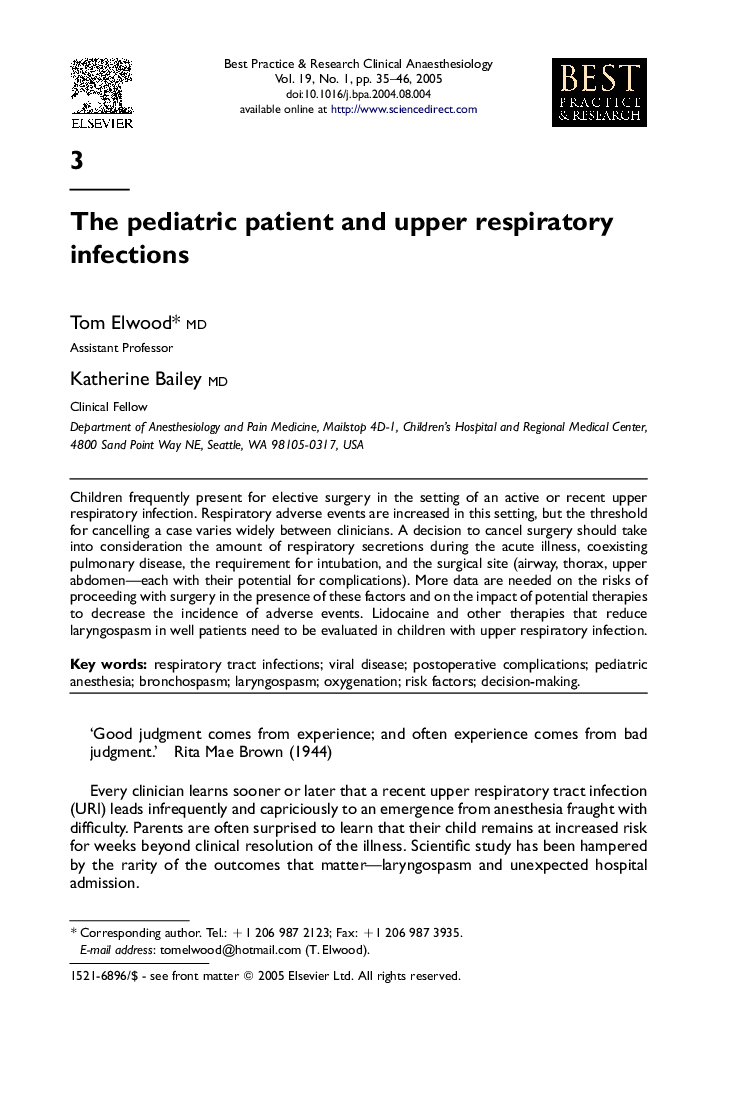| Article ID | Journal | Published Year | Pages | File Type |
|---|---|---|---|---|
| 9092624 | Best Practice & Research Clinical Anaesthesiology | 2005 | 12 Pages |
Abstract
Children frequently present for elective surgery in the setting of an active or recent upper respiratory infection. Respiratory adverse events are increased in this setting, but the threshold for cancelling a case varies widely between clinicians. A decision to cancel surgery should take into consideration the amount of respiratory secretions during the acute illness, coexisting pulmonary disease, the requirement for intubation, and the surgical site (airway, thorax, upper abdomen-each with their potential for complications). More data are needed on the risks of proceeding with surgery in the presence of these factors and on the impact of potential therapies to decrease the incidence of adverse events. Lidocaine and other therapies that reduce laryngospasm in well patients need to be evaluated in children with upper respiratory infection.
Keywords
Related Topics
Health Sciences
Medicine and Dentistry
Anesthesiology and Pain Medicine
Authors
Tom (Assistant Professor), Katherine (Clinical Fellow),
